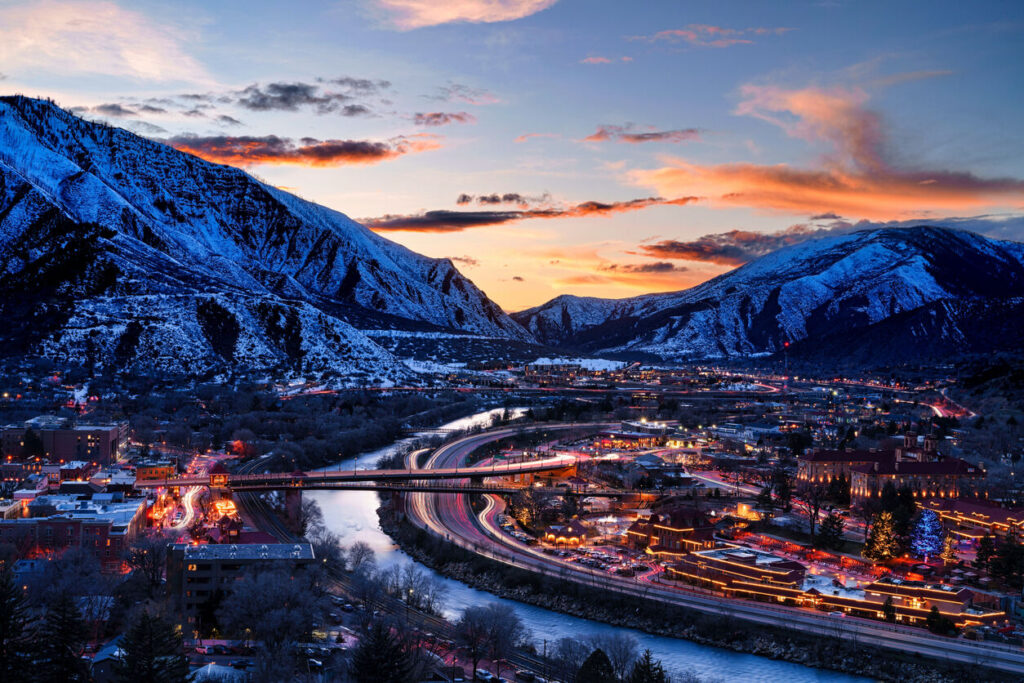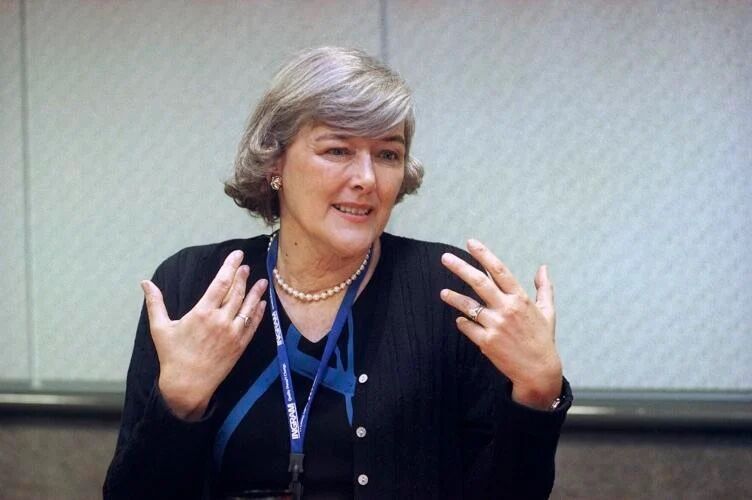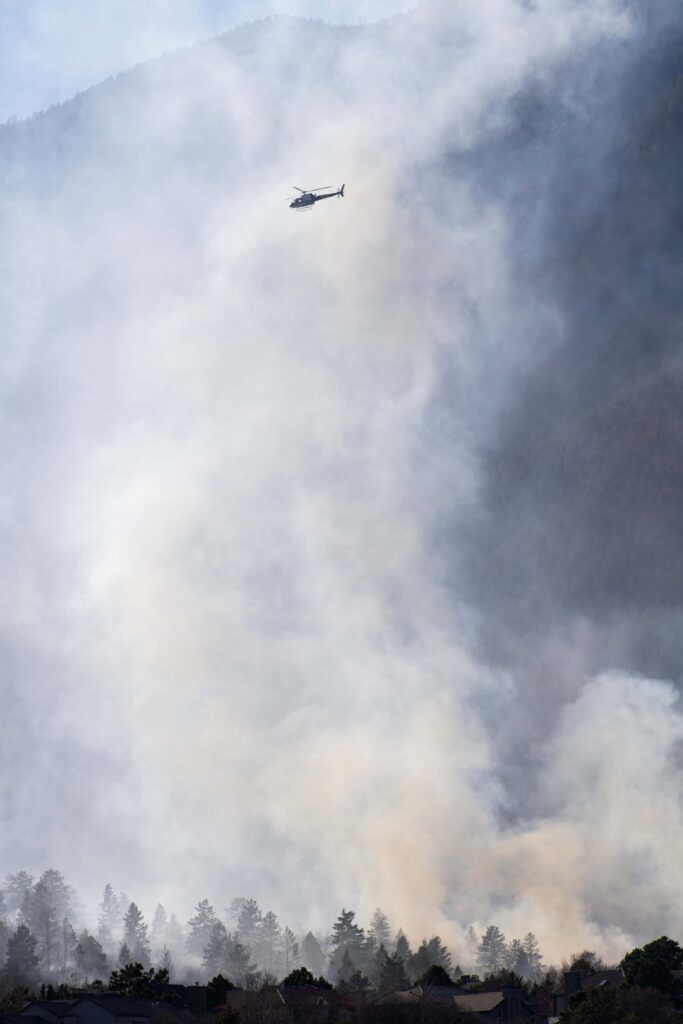Lawmakers battle oil and gas drilling setback bill from well-dug trenches
In Colorado, the rule is that oil and gas wells can be sited 1,000 feet from a school building. A bill that aimed to update that rule to measure the setback instead from the school property line drew crowds to the Capitol this month to testify in support of it and major drilling industry figures to argue against it.
In the end, there were no surprises concerning its fate. Oil and gas drilling has long been a top partisan issue at the Legislature.
House Bill 1256, was sponsored in the House by Rep. Mike Foote, a Democrat from Lafayette, and in the Senate by Democrats Matt Jones from Louisville and Irene Aguilar, a medical doctor from Denver. The bill won only party-line votes wherever it landed.
It passed in a House hearing and on the House floor without a Republican vote. Then it failed in the Senate health committee when the Democratic minority members voted for it and the Republican majority members voted against it.
That the bill was introduced at all is a sign of how skeptical Democratic lawmakers working the issue have become about the effectiveness of the state’s oil and gas regulatory bodies — a reflection of public sentiment in many of their districts, where residents of major Front Range cities have supported efforts to try and win greater local power to regulate the industry.
Oil and gas industry lobbyists and supporters, including Republican lawmakers, often write off those moves as the impractical work of “fracktivists” out to ban extraction altogether.
But supporters of the school setbacks bill argued not unsurprisingly in committee hearings that such a “commonsense” change to the current rules was not about banning drilling. They characterized the bill instead as a “correction” meant to meet the spirit of the existing setback rule put in place by the Colorado Oil and Gas Conservation Commission in 2013.
Foote argued that the present setback rule translates on the ground to wells being drilled sometimes much closer to school playgrounds and outbuilding classrooms.
Matt Sura, a Longmont-based oil and gas lawyer, described the bill as asking for a “very small change that would mean a great deal” in the gas patch communities. Sura for years during the hydraulic fracturing oil and gas industry boom has argued in favor of greater safety rules on drilling in urban settings.
“You all know very well that oil and gas is very important to Colorado,” he said. “This bill is not going to change the bottom line of the industry. It proposes a slight adjustment to how operators do business.”
Sen. Jones shook his head during closing remarks at the Senate committee hearing.
’We know where they stand’
The sponsors decided early on to take a legislative route to updating the setback rule.
Jones said they didn’t take the proposal to the Colorado Oil and Gas Conservation Commission, because he said they were sure they knew what the answer would be. He said that it’s up to lawmakers, working for constituents whose concerns are not being met through the rules-making process, to change the rule the way they can — through the Legislature.
“We know where they stand. It’s abundantly clear,” he said. “The industry has had its way and they don’t want to change anything.
“The fact is, companies can drill wells on school property. They can put them between school football fields and school buildings, and there’s no law to prevent them from doing it.”
Foote said he approached industry to work with them on the bill, but to no effect.
In praise of the regulators
In fact, at the committee hearings, it was the oil and gas industry attorneys and lobbyists who praised the state’s regulators.
“We strongly encourage the committee to trust the Colorado Oil and Gas Conservation Commission,” said Tracee Bentley, spokesperson for the Colorado Petroleum Council.
“Keep these decisions in the capable hands of the COGCC,” she said.
“I have the privilege of working frequently with the COGCC staff,” said Jill Fulcher, an industry attorney. She praised the staff’s “knowledge and expertise.”
Dan Haley, president and CEO of the Colorado Oil and Gas Association, said the Legislature was the wrong place to have the discussion. He said the bill was more about politics than about safety. He said drilling setbacks are a complicated issue — they deal with land use questions, surface and mineral rights; they concern community notice and engagement agreements and mitigation matters.
“We would argue the COGCC is the appropriate venue for these types of complicated discussions … We’re very sensitive to the fact that we’re talking about schools and our children. Fortunately in Colorado, we have regulatory bodies charged with measuring impacts to our health.”
Haley argued against what he called the “tight timeline” the bill presented to deal with the issue.
“There’s no time to do economic analysis and there are broad boundary concerns to a setback concept that would vary school to school, daycare facility to daycare facility,” he said.
Bentley said the bill would have unintended consequences.
“We looked at school property sizes in Weld County, where 90 percent of oil is drilled in the state,” she said, noting that, of 86 schools, 35 are sited on 10-acre lots and 18 are sited on 20-acre lots.
Fenberg and Fulcher
At one point during the Senate committee hearing, Steve Fenberg, a Boulder Democrat, wanted to know whether it was possible that new wells could be sited next to a playground at the edge of a school property line.
“It would be possible, but that’s not to say it would happen,” said Jill Fulcher, an industry attorney. “It’s important to note that the permitting staff would be looking at a proposal that would include aerial shots, so they would consider [the playground] … It’s my experience that, if such a site were permitted it would include stringent mitigation measures.”
“So it’s possible,” said Fenberg. “Does your industry think that’s appropriate that the laws and rules allow for that?”
“I would say that where the discussion is appropriate is with the commission and not within statute,” Fulcher said. “Once we pass legislation, and something becomes a requirement under statute, it gives us absolutely no leeway as an industry to potentially locate a site where it’s more or less appropriate.
Mega-sites and neighborhood drillers
Sura, who served on the governor’s oil and gas task force in 2015 and participated in the setback rulemaking negotiations in 2013, pushed back against the industry argument that the topic had been considered thoroughly by state regulators.
“I can tell you, there was no discussion about putting large facilities close to playgrounds or about any need to put in setbacks from playgrounds. Frankly, it was an oversight,” he said.
“There was also absolutely no discussion about the mega-sites we’re seeing today, because those sites hadn’t been conceived of yet. This industry is moving so quickly that the people involved in the 2013 rule-making could not have imagined that there would be 20-, 30-, even 50-well-head well pads.”
Sura pointed out that when the governor’s task force two years later took up the topic of setbacks for mega-sites, discussion went nowhere.
“The industry members of the task force voting in a bloc decided that there would be no discussion of setbacks, none whatsoever,” he said. “Even if there were 60 well heads proposed, the 500-foot setback, according to the position of the industry, would be sufficient.”
From the Capitol to the court
The Senate hearing for Foote’s bill took place the same day that a coalition of environmental and civil rights groups filed a lawsuit against the COGCC.
The coalition suit challenges the approval by the Colorado Oil and Gas Conservation Commission of a drilling project sited near the Bella Romero Middle School just outside of Greeley.
The Extraction Oil and Gas plan to drill 24 new wells some 1,350 feet from the walls of the school has been a target of activist concerns for some time.
The lawsuit argues the commission failed to adequately assess whether the site was as far away as possible from the school and nearby houses and for that reason failed in its mission to protect public health.
Groups signed onto the suit include Weld Air and Water, the Sierra Club, and the NAACP Colorado State Conference.
The complaint cites commission rules that require drillers to “evaluate alternative locations for the Production Facilities that are farther from the Building Unit, and determine whether those alternative locations were technically feasible and economically practicable for the same proposed development.”
Heavily Democratic Boulder County is also now enacting new rules of its own that will end a moratorium on drilling there. The moratorium drew a lawsuit this spring from the state’s Republican Attorney General Cynthia Coffman. Boulder’s new rules would be far stricter than state rules. Once Boulder’s new rules take effect, the county expects lawsuits to come in response, either from the industry or from the attorney general, or both.












